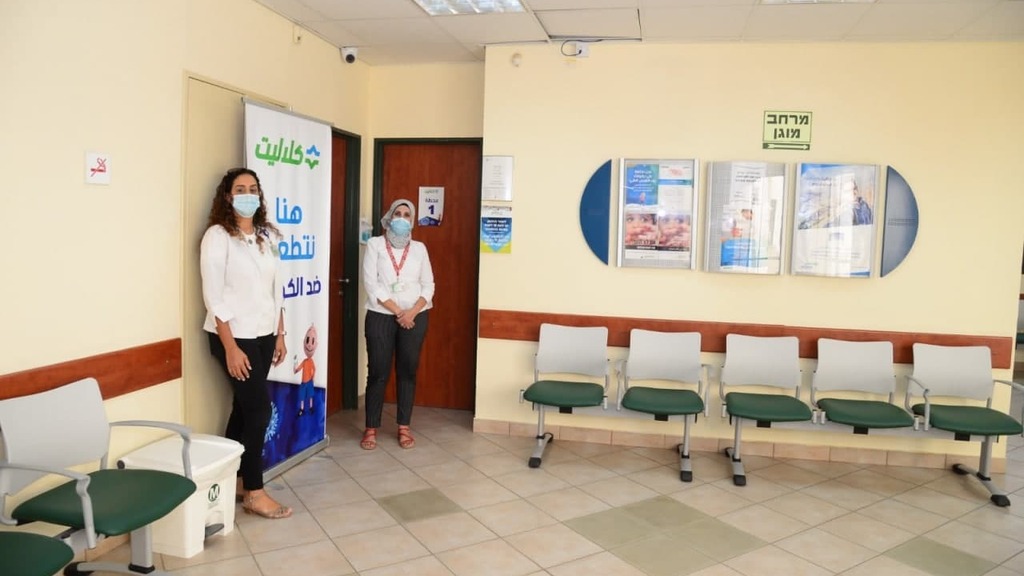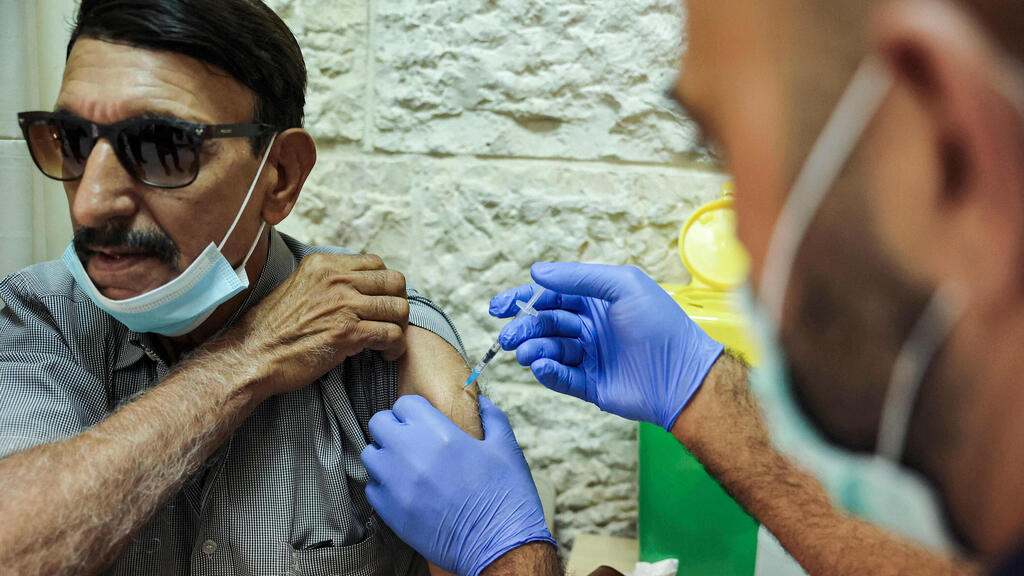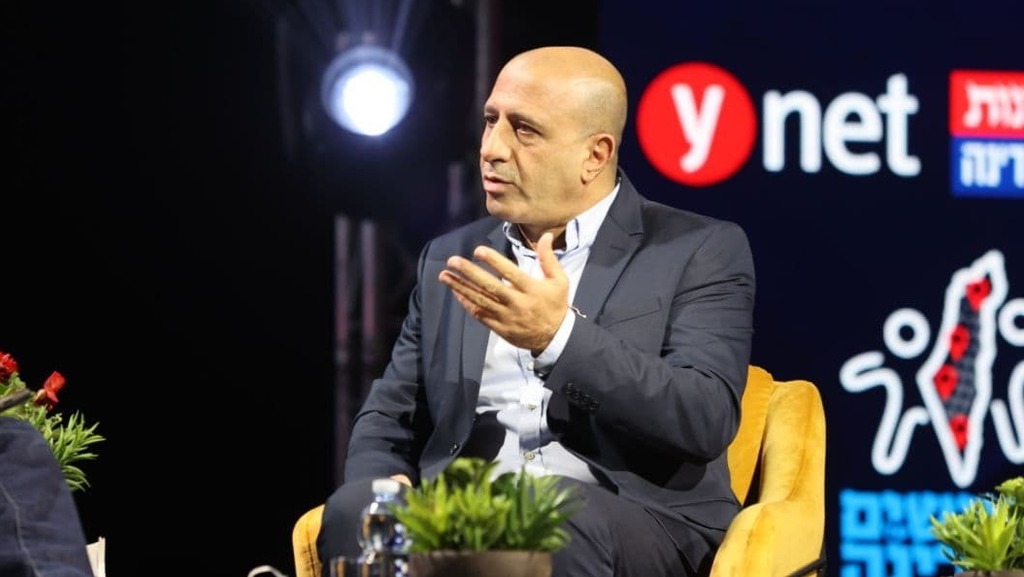The head of the coronavirus task force for Israel's Arab community warned Sunday that he expected the rate of infection to rise, despite the current low contagion rates in Arab communities.
Ayman Saif said that while the infection rate remained low in the Arab sector, there had been low levels of testing and warned of potential surges from large social gatherings that had not observed health regulations.
Saif told Ynet that by mid-June, 85% of the over-50s in the sector had had two doses of the vaccine, while some 70% had been vaccinated in the 16-50 age group and just 20% of 12-15 year-olds were inoculated.
3 View gallery


A vaccination site at a clinic in the Bedouin town of Tel Sheva stands empty as nurses wait to offer vaccines
(Photo: Herzl Yosef)
Since the third jab was made available, only 36% of approximately 100,000 eligible Israeli Arabs had received it, he said, but that the number was rising.
"Less than 10% of recently confirmed COVID cases are from the Arab sector and only 10% of the seriously ill are Arab," Saif said.
"This is an indication that there are no outbreaks in Arab communities," he said.
"But there is also a very low number of tests conducted there and there might be a yet undetected surge while weddings and other events with large crowds, have been taking place without enforcement of mitigation steps," Saif said.
3 View gallery


A Palestinian resident of East Jerusalem receiving his third coronavirus vaccine last week
(Photo: AFP)
Asked whether the government was doing enough in the Arab sector in order to encourage vaccines and enforce restrictions, Saif said there was always room for improvement.
"We've increased the number of vaccination sites including in the south of the country and in East Jerusalem, but we need to add more because accessibility to such locations is key," he said.
"The other vital aspect is education and media campaigns and though the Health Ministry is bolstering its efforts, there are still sectors of the population that are not being reached," Ssaid.
He called on the health authorities to increase efforts to explain the importance of the vaccines to younger people.
"We must update our messaging to the 12-18 age group, which is why we have been meeting with students and young teens, in order to understand why they are resisting vaccines," he said.
"We must enlist the help of social influencers and celebrities who communicate with the young generation on social media," he said.
3 View gallery


Coronavirus czar in the Arab sector Ayman Saif speaking at a Ynet conference earlier this year
(Photo: Alex Kolomoisky)
Saif said his concern was caused by "mass participation in celebrations and events [that] could cause cases to surge."
"We saw in the previous waves of the pandemic that the sector was slow to react to the vaccination drive, but I believe that if we take the necessary steps and bring the correct information to the public, we will be successful," he said.

